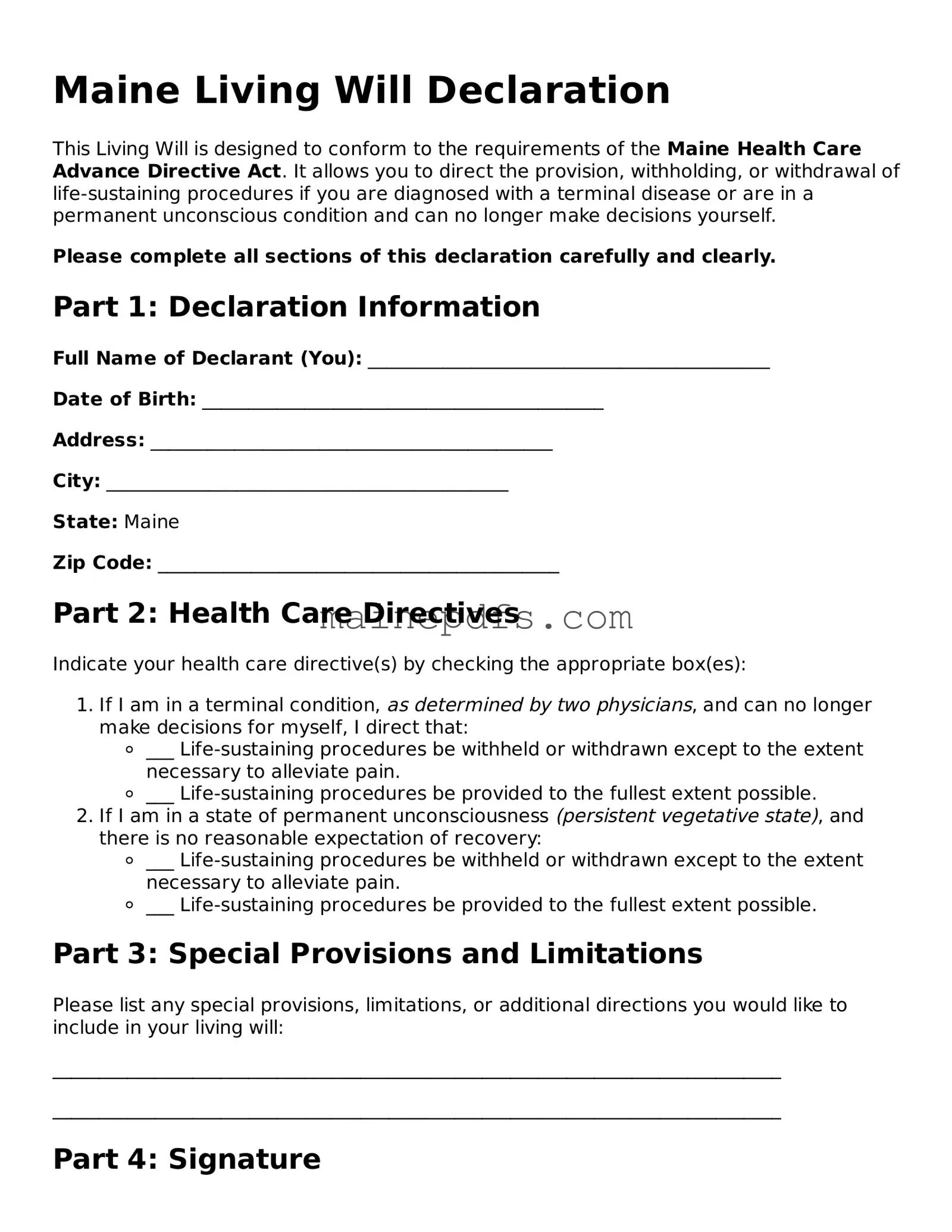Attorney-Approved Maine Living Will Template
A Maine Living Will form is a legal document that enables individuals to outline their preferences regarding medical treatments and end-of-life care. It ensures that a person’s medical treatment preferences are respected even when they are no longer able to communicate their wishes due to illness or incapacity. For those in Maine who wish to take control of their future healthcare decisions, filling out this form is an essential step.
To make this important task easier, you can fill out the Maine Living Will form by clicking the button below.
Make My Document Online

Attorney-Approved Maine Living Will Template
Make My Document Online

Make My Document Online
or
Click for PDF Form
A few steps left to finish this form
Finish Living Will online — no paper, no scanner needed.